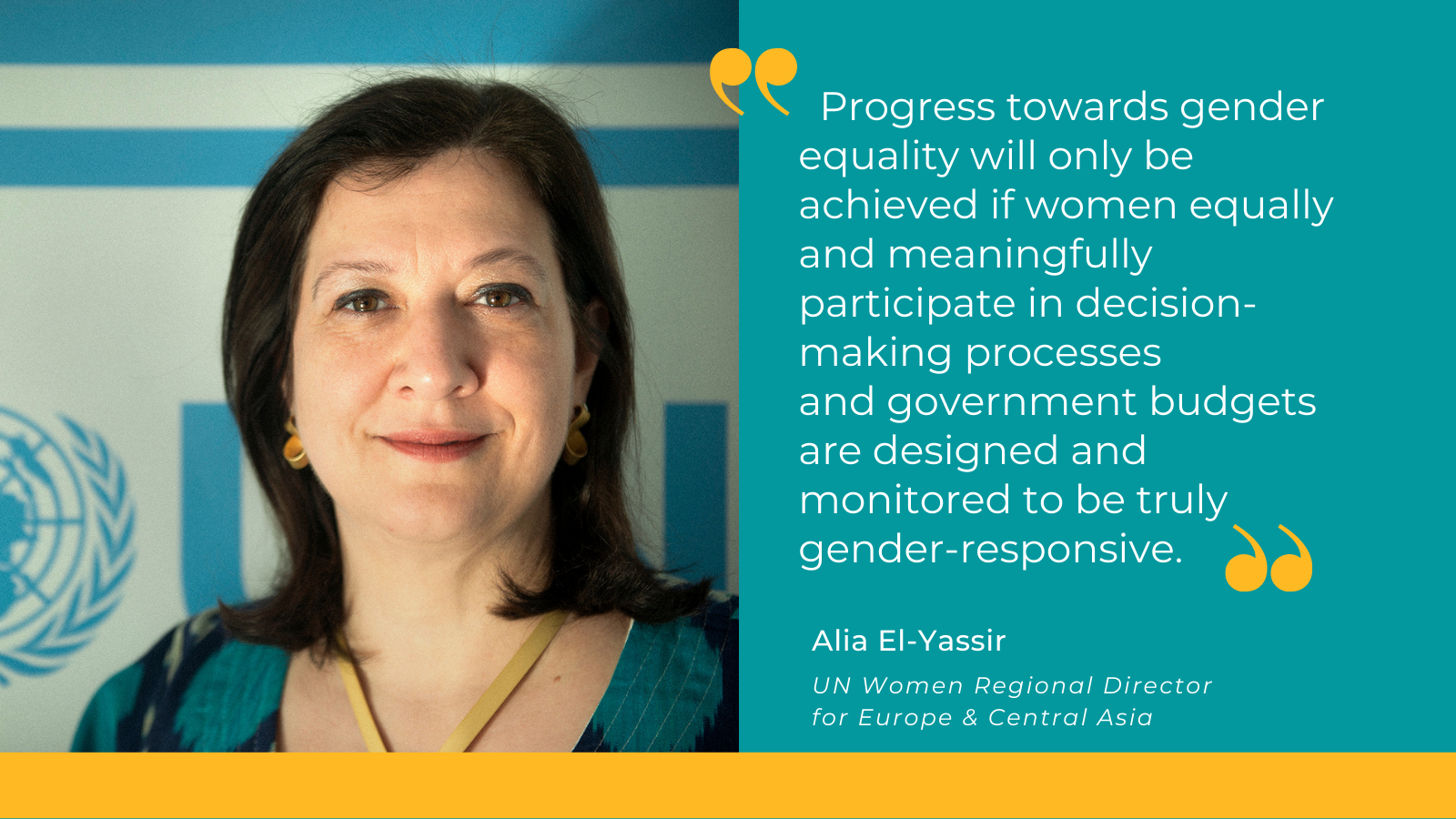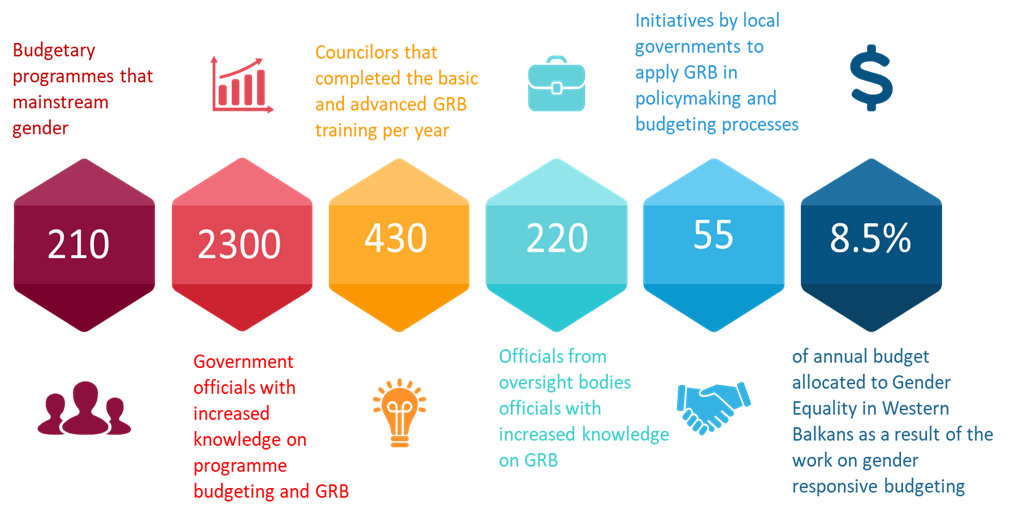
In this section
Home
About the Project
Events
Donors
Partners
Albania
Bosnia and Herzegovina
Kosovo*
North Macedonia
Serbia
UN Women has been implementing Gender Responsive Budgeting (GRB) interventions in more than 80 countries and is recognised globally for its excellent technical expertise in this area. In the Western Balkans, UN Women’s previous efforts have been effective in building the foundation for GRB.
Realising the full benefit of GRB requires a long-term commitment in order to achieve its full institutionalisation at all levels. While progress has been made on the legal framework, gender inequality persists in the Western Balkans. Wide gender gaps in pay and pension; uneven progress on tackling harassment and violence; ensuring access to health and sexual and reproductive rights; and the lack of paid maternal and family leave are among the continuing gender inequalities in this region.
In addressing these issues, GRB is recognised as a successful approach for dealing with the broader issues of democracy and governance as well as the many challenges associated with achieving gender equality in the Western Balkans.
The budget is the central policy document for each government and shows how it will prioritise and achieve its policy objectives. Its importance goes beyond estimating revenue and expenditure, which is why it is the core element for closing the gender gap. Budgets have the power to introduce and sustain change by ensuring the allocation of resources for selected programmes, sectors and interventions. It also facilitates redistribution in support of generating economic growth, employment, more favourable income and the promotion of gender equality.

Project Overview
The main approach will be transformative financing as an enabling factor for policy and financing actions aimed at accelerating implementation of existing national and international commitments stemming from the Beijing Declaration and Platform for Action, and meeting the new commitments on gender equality and women’s empowerment within the context of the 2030 Sustainable Development Agenda.
Through the project, the national and local governments will apply gender responsive budgeting to integrate the principle of gender equality into public financing processes and public oversight bodies. Women, including the disadvantaged, will demand transparency and accountability within public policies and budgets in line with gender equality processes by 2024.

Implementation approach
Regional level:
National level:
Local level:
Oversight:
Support effort to increase oversight and accountability within budget allocations and government expenditure by public oversight bodies and women, including the disadvantaged.
Expected results

Main Stakeholders

Click here to see the full list of the partners.
1 For UN Women, references to Kosovo shall be understood to be in the context of UN Security Council resolution 1244 (1999). For the European Union, this designation is without prejudice to positions on status, and is in line with UN Security Council resolution 1244 (1999) and the ICJ Opinion on the Kosovo declaration of independence.
Home
About the Project
Events
Donors
Partners
Albania
Bosnia and Herzegovina
Kosovo*
North Macedonia
Serbia